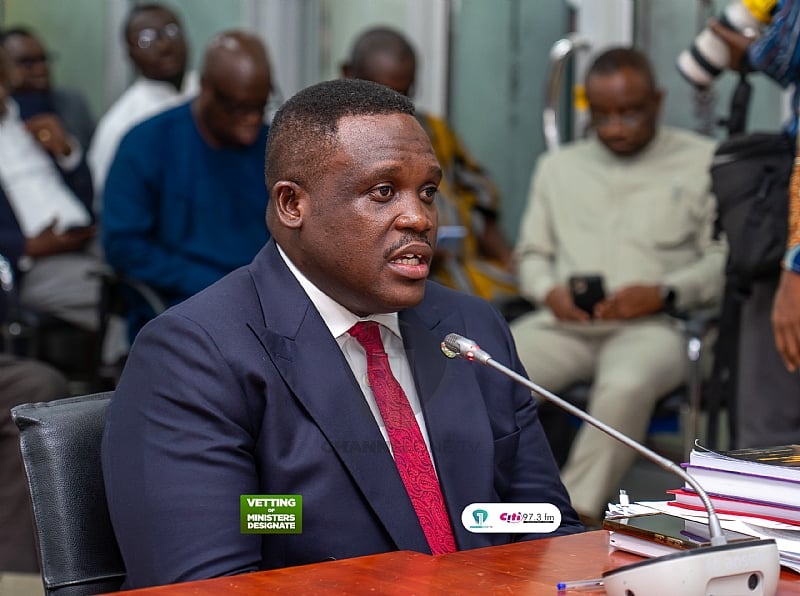The Ghanaian government, under the leadership of the Minister-designate for Communications, Digital Technology, and Innovations, Samuel Nartey George, is embarking on a comprehensive overhaul of the country’s telecommunications landscape. This ambitious plan encompasses a range of initiatives aimed at improving call quality, strengthening cybersecurity, expanding mobile network coverage, and protecting user data. Central to this strategy is a renewed focus on collaboration and accountability, with the government working closely with key stakeholders like the National Communications Authority (NCA), Mobile Network Operators (MNOs), the National Security apparatus, and the Ghana Investment Fund for Electronic Communications (GIFEC). The commitment to raising the bar for telecommunications services is evident in the pledge to impose fines on MNOs that fail to meet the stipulated Key Performance Indicators (KPIs). This performance-based approach seeks to directly address the persistent issue of subpar call quality experienced by many Ghanaians.
A major thrust of the government’s agenda is to bolster the nation’s cybersecurity architecture. Recognizing the multifaceted nature of cybersecurity threats, the ministry intends to foster closer collaboration with the National Security apparatus. This partnership will focus on strengthening the five key interfaces of the cybersecurity architecture: public awareness, industry cooperation, international collaboration, legal frameworks, and technical capabilities. This integrated approach acknowledges that a robust cybersecurity posture requires not only technological advancements but also concerted efforts in public education, industry engagement, and international cooperation. By addressing these multiple layers of vulnerability, the government aims to create a more resilient and secure cyber environment for individuals and businesses alike.
Bridging the digital divide and ensuring equitable access to mobile telephony services across the nation is another key priority for the government. To achieve this, the plan is to leverage funds from GIFEC to promote universal access to rural telephony. This initiative recognizes that access to mobile communication is no longer a luxury but a necessity for social and economic inclusion, particularly in remote and underserved areas. By extending mobile network coverage to these communities, the government aims to unlock new opportunities for education, healthcare, commerce, and social interaction. This investment in rural telephony infrastructure is seen as a crucial step toward achieving equitable development and empowering marginalized communities.
The government is also taking significant steps to enhance the security and integrity of the mobile phone subscriber base. A nationwide SIM re-registration exercise is planned, featuring a robust biometric verification process. This initiative will leverage technology to cross-check biometric data from the National Identification Authority (NIA) database. This enhanced verification process is designed to minimize the risk of fraudulent SIM registrations and strengthen the security of mobile communications. Importantly, the financial burden of this re-registration exercise will be borne by the MNOs, not the state. This cost-sharing arrangement underscores the government’s commitment to achieving its objectives while minimizing the financial impact on public resources.
Recognizing the growing threat of cyber fraud, the government is also placing a strong emphasis on public awareness and education. The Minister-designate cautioned citizens to be vigilant against online scams, particularly those involving impersonation of government officials. He highlighted the prevalence of fraudulent job offers circulating on social media platforms, urging the public to exercise caution and skepticism when encountering such solicitations. This emphasis on public awareness reflects the understanding that cybersecurity is a shared responsibility, requiring both government action and individual vigilance. By empowering citizens with the knowledge and tools to identify and avoid online scams, the government aims to reduce the incidence of cyber fraud and protect vulnerable individuals from falling victim to these schemes.
Finally, the government is committed to strengthening the protection of personal data in the digital age. Recognizing the immense value of personal data, the government plans to re-tool the Data Protection Authority to enhance its capacity to safeguard user information. This initiative reflects the growing awareness of the importance of data privacy in an increasingly interconnected world. The government’s focus on reinforcing the Data Protection Authority underscores the commitment to ensuring that individuals’ personal information is handled responsibly and securely. By bolstering the authority’s capabilities, the government aims to prevent unauthorized access, misuse, or disclosure of personal data, thereby fostering trust and confidence in the digital economy. This comprehensive approach to telecommunications reform reflects a broader vision of a digitally empowered Ghana, where technology serves as a catalyst for social and economic progress.














